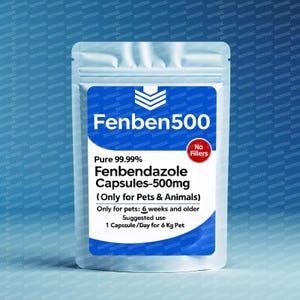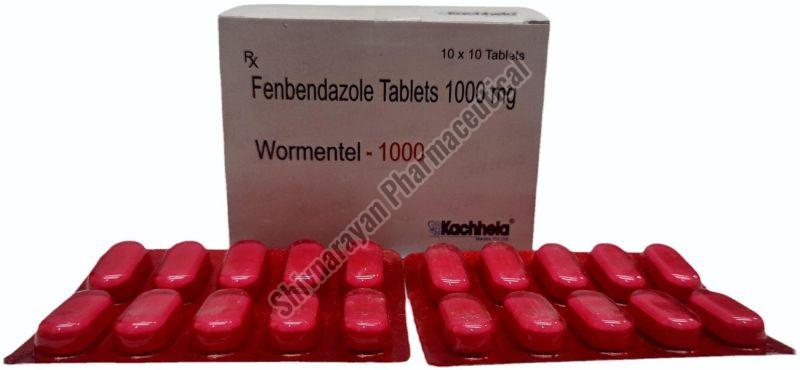Understanding the Benefits and Uses of Fenbendazole in Veterinary Medication
Fenbendazole has developed itself as a crucial anthelmintic in vet medication. Its ability to target numerous parasitic infections makes it a useful device for vets. The medicine's system disrupts vital mobile procedures in parasites, resulting in reliable treatment results. Its safety profile varies between species, requiring mindful consideration in its use (fenbendazole 444). Understanding these characteristics can clarify fenbendazole's more comprehensive implications in veterinary treatment and ongoing research study into its possible past conventional applications
Mechanism of Action of Fenbendazole

Common Parasitic Infections Treated With Fenbendazole
A range of parasitic infections are successfully treated with fenbendazole, making it a versatile option in vet medication. This anthelmintic representative is particularly reliable versus nematodes, consisting of roundworms and hookworms, which commonly affect pet dogs and cats. It is also used for the therapy of cestodes, such as tapeworms, supplying a wide range of action versus both sorts of intestinal bloodsuckers. Furthermore, fenbendazole is beneficial in managing infections brought on by protozoa, specifically Giardia, which can lead to gastrointestinal distress in pets. Its efficacy prolongs to dealing with certain lungworms in dogs and felines, resolving respiratory health worries linked to these bloodsuckers. On the whole, fenbendazole's ability to target several parasitical varieties makes it a valuable device in veterinary method, guaranteeing the health and wellness and well-being of pet dogs affected by these usual infections.
Security and Effectiveness in Different Animal Variety
The safety and security and efficacy of fenbendazole differ among different animal varieties, underscoring the importance of species-specific considerations in veterinary medication. In pooches, fenbendazole is normally well-tolerated and effective against a variety of intestinal bloodsuckers, including roundworms and hookworms. For felines, nevertheless, its use is less usual and might require careful application because of potential adverse responses.
In livestock, such as livestock and lamb, fenbendazole shows efficiency against numerous endoparasites, adding to enhanced health and performance. The pharmacokinetics and prospective side impacts can differ considerably in between types, demanding cautious evaluation by veterinarians.
Equines also react favorably to fenbendazole, especially for dealing with strongyles and ascarids, though dose and management paths must be customized to their one-of-a-kind physiology. Understanding these distinctions is crucial for maximizing therapy outcomes and making certain animal welfare across diverse varieties.
Management and Dosage Standards
Correct administration and dosage standards are essential for making best use of the healing results of fenbendazole while minimizing prospective adverse effects. The dose normally differs depending on the species being treated, the specific problem, and the solution of fenbendazole utilized. fenbendazole capsules. For canines and felines, a typical dose is 50 mg/kg body weight, provided daily for 3 successive days, but veterinarians may change this based upon specific health analyses
It is essential to administer fenbendazole with food to boost absorption and minimize gastrointestinal upset. The medicine is readily available in numerous forms, including granules and paste, permitting flexible administration choices. Checking the pet's action during and after therapy is recommended to confirm effectiveness and safety and security. In addition, company website vet advice is essential to determine the suitable duration of therapy based on the sort of parasitic infection being dealt with, guaranteeing optimal results for the animal's wellness.
Future Viewpoints and Research Study on Fenbendazole
Research study on fenbendazole continues to develop, concentrating on its prospective applications past traditional antiparasitic usages. Current research studies have discovered its efficiency in dealing with various kinds of cancer cells, particularly in vet oncology. Initial data suggest that fenbendazole might inhibit the development of growth cells and improve the results of various other chemotherapeutic representatives.
In addition, researchers are examining its function in handling intestinal conditions in animals, highlighting its anti-inflammatory residential or commercial properties. The versatility of fenbendazole for various types questions about its safety and security profiles and excellent dosing regimens in varied populations.
As rate of interest grows, there is a need for complete scientific tests to develop evidence-based standards for these unique applications. Future research might likewise check out the mechanisms behind fenbendazole's impacts, possibly leading the means for ingenious healing techniques in veterinary medicine. The continuous expedition of fenbendazole might greatly enhance treatment alternatives for different vet problems.

Regularly Asked Concerns
Is Fenbendazole Safe for Pregnant Animals?
The safety and security of fenbendazole for pregnant animals remains unsure. published here While some studies recommend minimal risk, veterinarians normally suggest caution and frequently suggest versus its use while pregnant unless the advantages clearly exceed potential risks.
Can Fenbendazole Be Made Use Of in Livestock?
Fenbendazole is frequently made use of in animals to deal with different parasitic infections. 222 mg. Its effectiveness against stomach worms makes it a beneficial anthelmintic, adding to improved health and wellness and efficiency in animals increased for food and fiber
What Are the Negative Effects of Fenbendazole?

The side impacts of fenbendazole might consist of gastrointestinal disruptions, sleepiness, and allergic responses. have a peek at this website In unusual cases, much more severe responses might occur, necessitating careful surveillance and consultation with a vet during therapy.
Exactly How Does Fenbendazole Contrast to Other Dewormers?
Fenbendazole offers broad-spectrum efficacy against various parasites, usually contrasting positively to various other dewormers. Its one-of-a-kind device targets various life stages, making it efficient, while usually offering a favorable security profile compared to choices readily available on the market.
Can Fenbendazole Be Made Use Of for Dealing With Cancer Cells in Pets?
The potential of fenbendazole in dealing with cancer in pet dogs has actually gathered rate of interest. Preliminary studies recommend it might hinder cancer cell development, however even more research is needed to confirm its effectiveness and safety and security in vet oncology.